

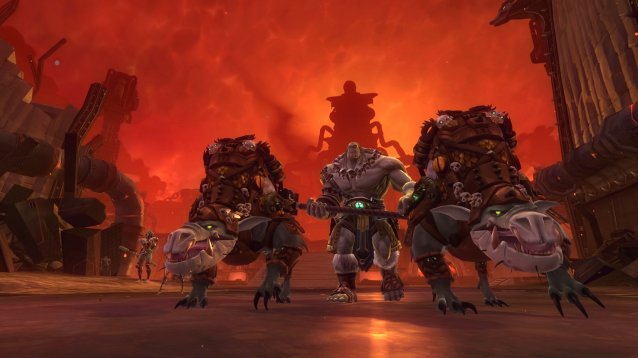
For any newly launched MMORPG, it isn’t enough to be as good as World of Warcraft was when it launched in 2004. Instead, new MMOs looking to gain a foothold in the genre’s multi-million, global user base have to compete with a World of Warcraft with nearly a decade of perfected formulas and new features. Despite this insurmountable task, WildStar manages to deliver a feature and content-rich MMORPG at launch with an incredible amount of polish and a personality entirely its own.
WildStar immediately puts you into the heart of its two faction war for control of the newly-discovered planet Nexus. In the past, an alien race known as The Eldan called Nexus home, and that’s where they left behind their incredible technology before mysteriously vanishing. Now that the Dominion (an intergalactic space empire) and the Exiles (rebels driven from their home planets) have found it, battles are breaking out all over Nexus, including its moon.
For MMO fans who love lore, WildStar has a lot to take in. Littered throughout the world are journals that players can discover for even more background. At the same time, WildStar’s world seems more slapstick than anything else. Perhaps that it is the fault of the game’s presentation which includes Level Up and respawn messages that break the fourth wall or are excessively self-aware. It isn’t necessary a problem - players can still enjoy rich lore even if most of the game is little more than tropes used for comedic effect. Honestly, it’s like a Tolkienesque version of a 1950’s sci fi B-movie: a bit shlocky and almost alarmingly detailed in scope.
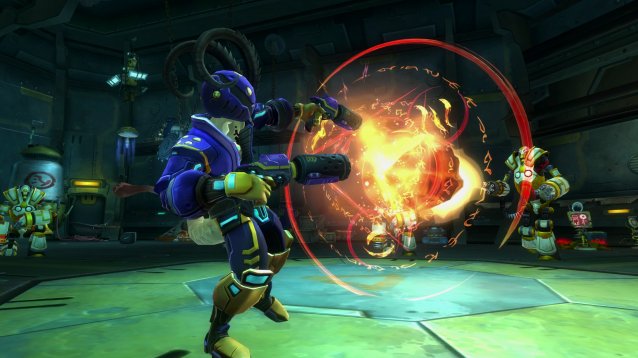
Story aside, WildStar’s real focus is its action combat. Following along a genre trend toward more active gameplay, players can actively dodge, have up to eight abilities at their disposal, and an additional class-defining ability. WildStar borrows heavily from specific elements of games like League of Legends, as almost all of its abilities are skillshots that have to be aimed at specific locations or in certain directions. The thing that sets WildStar apart are the telegraphs which display where abilities will land. Telegraphs are an incredibly effective way of communicating important gameplay information through visuals alone without needing prior knowledge of the attack and what it does.
The telegraph system is especially important for group-based content. As with other MMORPGs, WildStar features instanced areas to play with friends or match-made strangers. Telegraphs make boss encounters easy to pick up (since what to avoid is obvious) but also more challenging. The additional immediacy of the information conveyed by telegraphs allows for far more complicated boss patterns. Combined with the game’s trinitarian approach to classes (tank, healer, and damage dealer), dungeons in WildStar are safe by genre standards, but still refreshing and entertaining because of the action combat and added challenge.
The combat and telegraph system aren’t perfect, however. They work well enough in dungeons, but simultaneously staying out of the red, while staying in the green, and aiming your abilities often feels exhausting. It’s not quite the sensory-overload many gamers might experience playing a ‘bullet hell’ shoot ‘em up game, but it is the closest a MMORPG has ever gotten. Furthermore, the system tends to fall apart in WildStar’s instanced Player versus Player content. With so many telegraphs on screen at once, the game quickly devolves into chaos. WildStar’s unique approach to Crowd Control abilities is a great addition in theory, but only further complicates the experience. Rather than traditional abilities that disable or limit your character for x amount of time, each of WildStar’s CC abilities requires players to perform different actions to free themselves in a more timely manor. For instance, rapidly pressing a specific direction key or actually finding your disarmed weapon somewhere away from your character. When it works, all these systems combine to create a unique MMO experience, but when it doesn’t work, WildStar can be maddening to play.
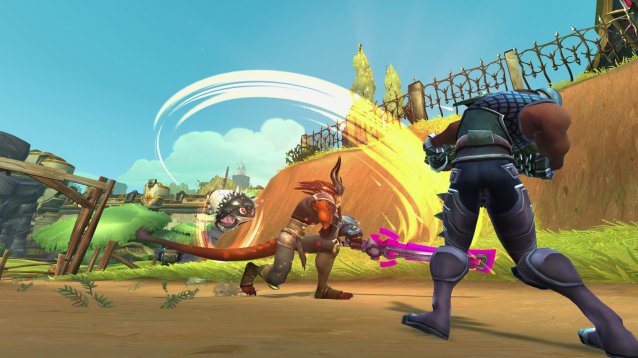
It wouldn’t be much of a MMO if it lacked content. For a launch title, WildStar has enough content to rival other games that have been out for years. Leveling works like most quest-based MMORPGs, but the more upbeat combat and the addition of remote turn-ins for quests (rather than by returning to a centralized hub) keep the experience fresh enough to be fun despite the obvious grinding. In addition to Dungeons and Adventures for groups, WildStar also has Shiphand missions which offer a bit of instanced content that scales from the solo player to max-sized groups. WildStar also has a lot of plans for a robust End Game which currently features a very lengthy series of attunements in order to access higher level raids. It’ll likely be a daunting task for more casual players to overcome, but it should keep most End Game-focused MMORPG fans both busy and entertained.
While WildStar puts a lot of fresh paint on classic MMORPG mechanics and does so with some excellent combat-centric gameplay, it’s the rest of the game that really differentiates it from both the competition and other newly launched MMORPGs. From the outset, WildStar allows players to repurpose gear for style reasons. Over time, players unlock multiple costume slots which can be equipped with old gear or gear designed specifically for its art (such as a Raiden outfit ala Mortal Kombat). In addition to finding and unlocking dyes or mount-based customization, it’s very easy to make your character stand out from everyone else’s on Nexus.
WildStar also features one of the better Housing systems in recent memory. Every player is given an instanced plot of land to customize with items found while questing or crafted by the Architect tradeskill. In a real twist of genius, players can invite others to be their neighbors, which allows for multiple people to help garden and gives even more incentives to build cool houses to show off to friends. Housing feels like a game unto itself, and will likely be a big reason why WildStar retains future players. It’s also great to have such a deep Housing system because it rewards players for progress in other areas of the game without having to give them excess power increases through increasingly better gear.
It’s a difficult task to capture fully the experience of MMORPGs. The genre is predicated on tons of content intended to last players for months, if not years. It’s made even more difficult when a game like WildStar comes along, content-rich and incredibly varied in its well-balanced features. That’s why it is easy for me to recommend WildStar to new and old MMO fans alike, as well as to anyone looking to jump into their first MMO. The game literally has something for everyone and does everything incredibly well.
9 out of 10
A copy of the game was purchased by the reviewer, but copies of the game were provided by the publisher for the purpose of our previous article. WildStar is available from the game's official website for $59.99.
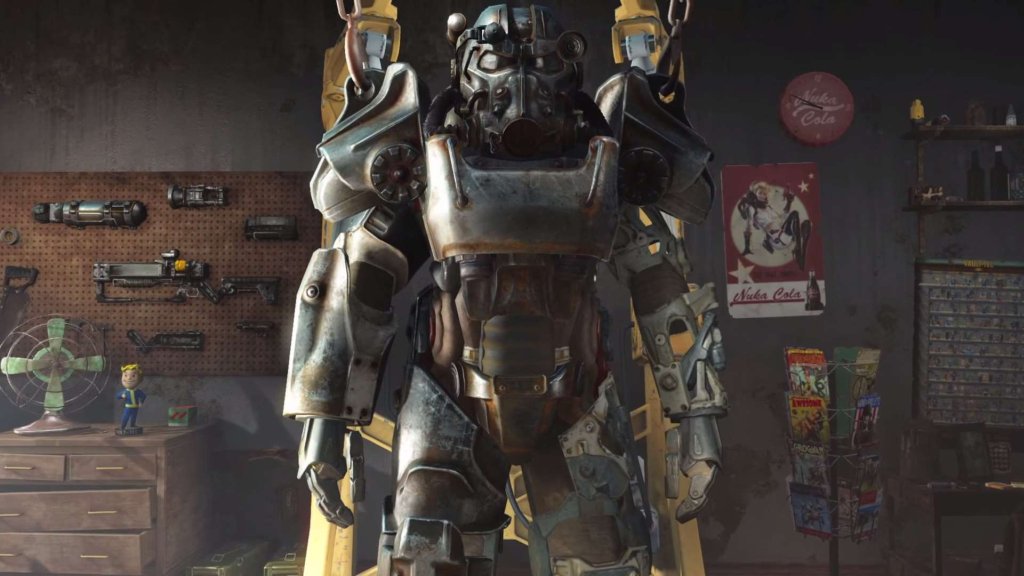
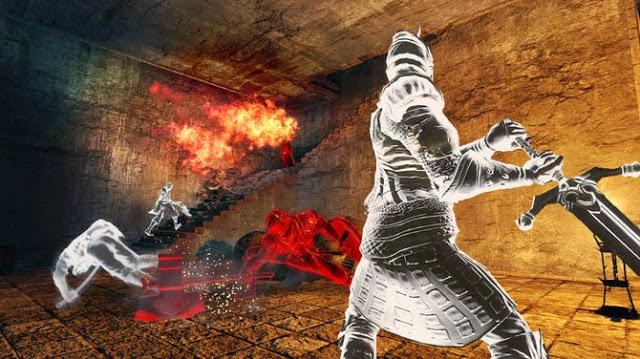

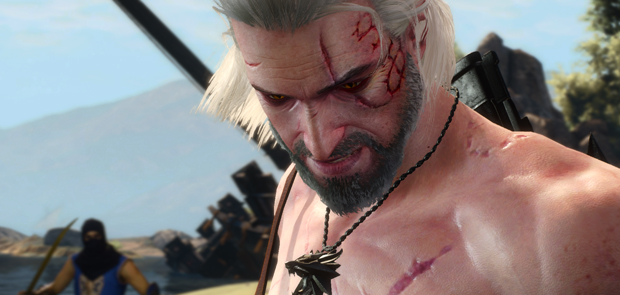
 Metal Gear Solid V The Phantom Pain: Africa Side OPs Walkthrough
Metal Gear Solid V The Phantom Pain: Africa Side OPs Walkthrough 8 Online Habits to Kick Because They're Costing You Money
8 Online Habits to Kick Because They're Costing You Money Dark Souls 2: How to defeat the Old Dragonslayer and join the Blue Sentinels
Dark Souls 2: How to defeat the Old Dragonslayer and join the Blue Sentinels Don't Tap That Link! This Website Will Crash Your Phone
Don't Tap That Link! This Website Will Crash Your Phone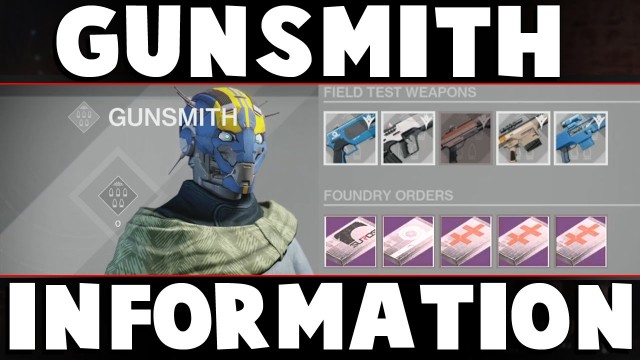 Destiny Field Test Weapons Guide For Week 1: How To Level Up and Best Place To Level Each Weapons
Destiny Field Test Weapons Guide For Week 1: How To Level Up and Best Place To Level Each Weapons